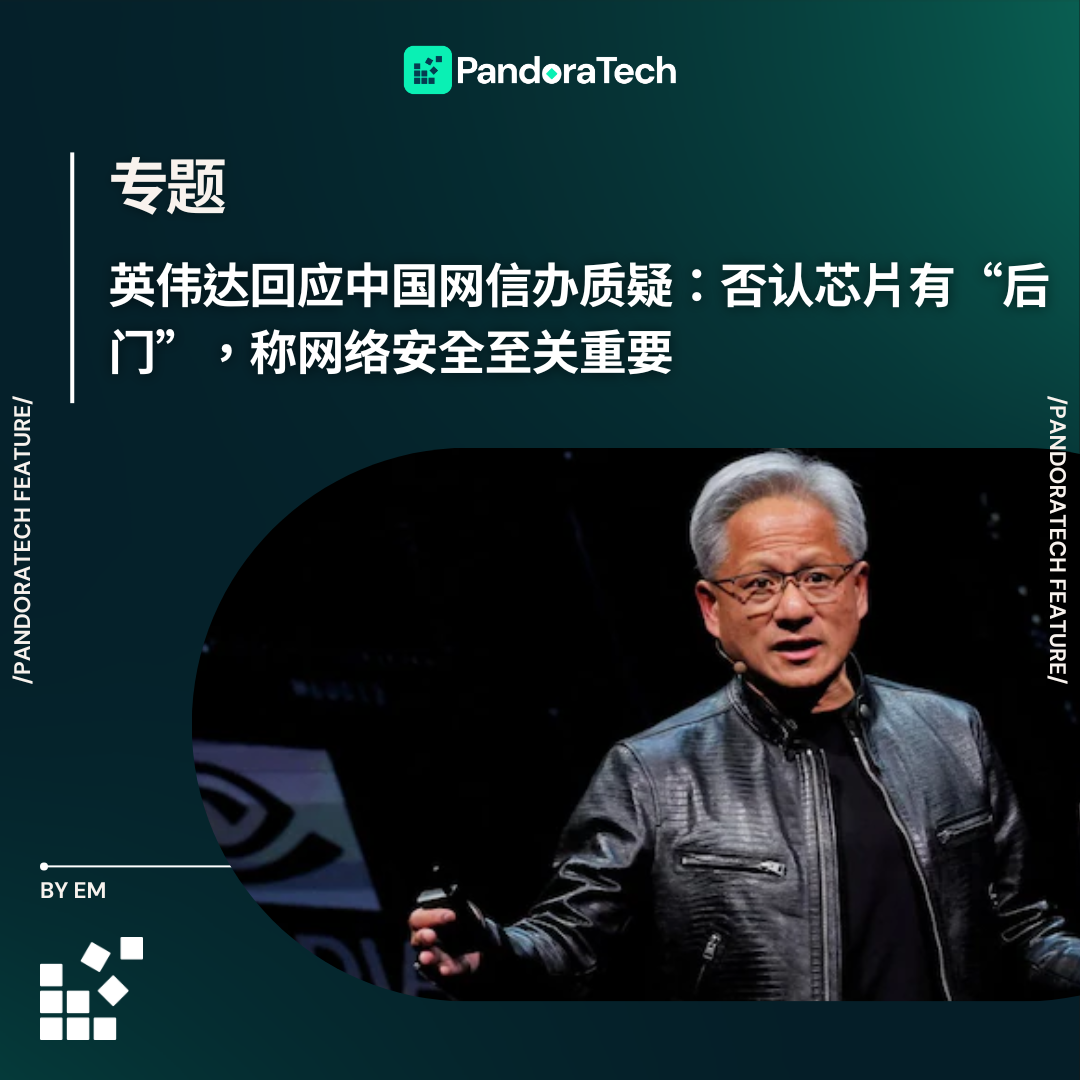Nvidia responds to China's Cyberspace Administration of China's questions: denies chips have "backdoors" and says network security is crucial
According to PandoraTech News, in response to a recent statement from the Cyberspace Administration of China (CAC) stating that "Nvidia's computing chips have serious security issues," Nvidia stated that its chips "do not have backdoors" and do not provide any remote access or control functions.
Nvidia emphasized in a statement: "Cybersecurity is of paramount importance to us. We strictly abide by the laws and regulations of relevant countries and regions, and will never set up mechanisms in our chips that can be manipulated by others."
The incident originated on July 31, when the Cyberspace Administration of China summoned Nvidia and asked it to explain whether the H20 chips sold to China have functions such as "tracking and positioning" and "remote shutdown" and to submit complete technical safety materials.
This type of technology has previously been proposed by some US lawmakers for export control, requiring US-made high-performance AI chips to be equipped with functions that can be remotely tracked or shut down by the United States.
Analysts point out that this exchange reflects the escalating confrontation between China and the United States over computing power and data sovereignty. For Nvidia, how to comply with US regulations while safeguarding its business prospects in the Chinese market will become a strategic challenge.
🧠 Analysis
The security and trust issues arising from the AI chip controversy will redefine the "trusted perimeter" of the international technology supply chain. While Nvidia's response has temporarily alleviated some public pressure, the structural conflicts between China and the United States over algorithms, chips, and data sovereignty remain far from resolved.
PandoraTech - Opening the Pandora's Box of Blockchain
